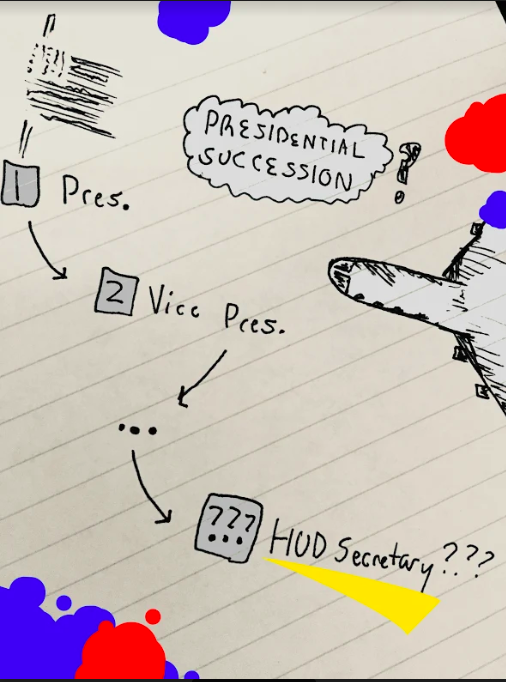ALMOST NEXT-IN-LINE: THE SECRETARY OF HUD
Take your time to get to know a seemingly well-hidden but immensely important governmental occupation.
When John F. Kennedy was assassinated, it was clear who would succeed him to become the 36th president of the United States: Lyndon B. Johnson, the vice president at the time. Americans, however, aren’t content with this seemingly simple successional system, and, in what can be seen as a preparatory move for all possible contingencies, conjured up a list of 17 (or… 18?) positions whose occupiers would, in the case of a tragedy, assume the office of the presidency in descending order of their positional importance.
Taking a glance at the list, one with a bit of political knowledge can easily understand why the Secretary of State occupies the fourth position, and even why the Secretary of Defense occupies the sixth; after that, however, things seem to get a bit murkier. I’m speaking, of course, of the fact that, in the case of an extremely tragic and unlikely event, the occupier of the presidency would be none other than the Secretary of Housing and Urban Development, otherwise known as the HUD secretary. If you’re a normal person, this is probably not a position familiar to you (no offense to all you political junkies out there), unless you have recently tuned in to watch ABC’s Designated Survivor, in which this very scenario takes place.
So, who is the HUD secretary, exactly? With a quick Google search, the answer is easily found: Ben Carson. Sound familiar? (If this name does not sound familiar, continue reading as if the last sentence never appeared before your eyes.) But, a more important question needs to be asked: what does this venerable secretary do? According to the official government website about this position (found on www.hud.gov—there’s something fun to do in your spare time), having the occupation is a “major responsibility,” and the powers invested in the position are multitudinous and myriad. Well, they didn’t use those words exactly, but they did state that “all powers and functions of the Department of Housing and Urban Development are vested in the Secretary.” All powers. That’s powerful.
So, to figure out what the secretary does, we need to look at what his department does (that is, the Department of Housing and Urban Development, or the “D of HUD”). According to Investopedia, the department is in charge of “promoting fair and equal housing,” and the overseeing of programs that have been initiated to contribute to that goal. The department oversees important government programs and organizations pertaining to housing, including the Federal Housing Administration (FHA), the Community Development Block Grant program, and the Housing Choice Voucher Program. Additionally, the department makes sure that the organizations it oversees are sufficiently aiding in natural disaster recovery, treating needy Americans fairly and equally, and generally contributing to Americans in a way that will better the nation. And the man at the top of it all? The HUD secretary.
With the Department of HUD in charge of so many recognizable and important housing and economic programs, it’s clear that the influence of HUD secretary can’t be overlooked. Although his job may be multifaceted and difficult to understand, jobs like this are what keep America functioning! But, if you’re worried about the occupant of a position you’ve only just learned about becoming the president of the entire nation, there is no need to fear. A government with such competence that it is inclined to make a list of 17 presidential alternatives in case of a disaster surely has many intelligent plans to keep a terrible situation like that from ever happening.







